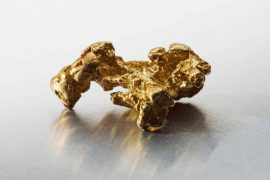
Keto diet may reduce depression more than therapy or drugs
Can the food we eat influence our mood? A new study suggests that diet might hold more power over mental health than many realize. Researchers observed a striking reduction in depression symptoms among college students who followed a ketogenic diet for at least 10 weeks.
The findings not only highlight a potential dietary approach to improving mood but also reveal positive effects on cognition, weight, and overall well-being. For students struggling with both mental health and academic pressures, such results carry deep implications.
Depression and college life
Depression remains a serious obstacle for college students in the United States. Studies show nearly 40 percent of students report symptoms, and about half are in treatment. Even so, demand for counseling often exceeds available resources.
“We have a treatment gap in that we have more students suffering from mental health concerns than can feasibly receive professional treatment,” said Dr. Ryan Patel, a psychiatrist at Ohio State University.
“There is a need for finding ways of helping students on a large scale. And nutrition is one way we can do that.”
Testing the ketogenic diet
Twenty-four students joined the pilot trial, and 16 completed it. All participants had major depressive disorder and were already receiving therapy, medication, or both.
The researchers guided the students through a low-carbohydrate, high-fat ketogenic plan designed to trigger nutritional ketosis.
“It was very important to make sure participants knew what they were getting themselves into,” said Drew Decker, first author of the study.
“And a big part of increasing chances for adherence to the diet was talking to each individual about what they like and don’t like to eat so we could tailor some suggestions for how they could structure their diet.”
Treating major depressive disorder
The team used both self-reported and clinician-rated tools to track changes in depression, including the Patient Health Questionnaire-9 and the Hamilton Rating Scale for Depression.
The researchers also measured well-being, body composition, and cognitive performance. Biological markers such as brain-derived neurotrophic factor (BDNF), leptin, and inflammatory proteins were analyzed.
“One of the things we really wanted to make sure of is that we were providing a treatment for people who met the diagnostic criteria for having major depressive disorder,” said Dr. Jennifer Cheavens, professor of clinical psychology at Ohio State.
Keto diet reduces depression
The results surprised even the researchers. Depression symptoms dropped nearly 70 percent within 10 to 12 weeks, measured by both self-reports and clinical assessments.
Students reported greater well-being, which nearly tripled from the start. Cognitive performance improved, and most participants lost an average of 5 kilograms of body mass. Importantly, symptoms did not worsen for anyone.
“The average effect size for medications and counseling after 12 weeks is about 50%, and we saw a substantially greater result,” said Dr. Patel.
“That is an impressive finding, that across the board, in this real-world setting, everybody got better, and across the board, our participants did not need more treatment or emergency intervention.”
Biological signals of improvement
The ketogenic diet was linked with reduced leptin levels and increased BDNF. Both changes suggest improvements in brain health and metabolic balance. Elevated BDNF is especially relevant, as low levels are often associated with major depression.
Leptin reductions reflected weight and fat loss but also improved sensitivity to this hormone, which influences inflammation and cognition.
Importantly, the study did not find significant changes in cholesterol or triglycerides, easing concerns about possible adverse metabolic effects of a high-fat diet.
The keto diet’s link to depression
For lead researcher Dr. Jeff Volek, the study fits into his decades of work on ketosis and its medical applications.
“The idea is that the ketogenic diet is working through a variety of potentially different mechanisms – there’s a whole range of physiological metabolic adaptations to the diet that could overlap with some of the pathophysiology of depression,” explained Dr. Volek.
Theoretical pathways include reduced inflammation, improved insulin sensitivity, increased neurotrophic factors like BDNF, and even neuroprotection within the hippocampus.
Ketosis is also linked to more stable brain networks, as observed in functional MRI research.
Student experiences in the keto trial
Most participants maintained nutritional ketosis 73 percent of the time, supported by coaching, personalized meal guidance, and digital communication with dietitians.
While two students reported mild “keto flu” symptoms such as cramps and headaches, these were quickly resolved with electrolyte support.
Despite the positive results, attrition was higher than in similar diet studies, likely because students had to manage the trial alongside academic schedules.
Next steps for the keto diet
“So many people are suffering right now, so it’s rewarding to potentially bring forward a solution,” said Dr. Volek.
“There is more science yet to do, but because there is evidence of a benefit, expanding accessibility to a well-formulated ketogenic diet as an augmentation to treatment for depression is something to think about.”
The researchers emphasize that larger clinical trials with control groups are needed. Still, the pilot demonstrates that nutritional strategies may have untapped potential as part of mental health care.
This project, supported by the Baszucki Group Brain Research Fund, highlights a field known as metabolic psychiatry, where diet intersects with mental health.
The possibility of reducing depression symptoms through a carefully structured ketogenic diet could change how treatment is approached, especially for students balancing academics and well-being.
The study is published in the journal Translational Psychiatry.
—–
Like what you read? Subscribe to our newsletter for engaging articles, exclusive content, and the latest updates.
Check us out on EarthSnap, a free app brought to you by Eric Ralls and Earth.com.
—–
News coming your way













